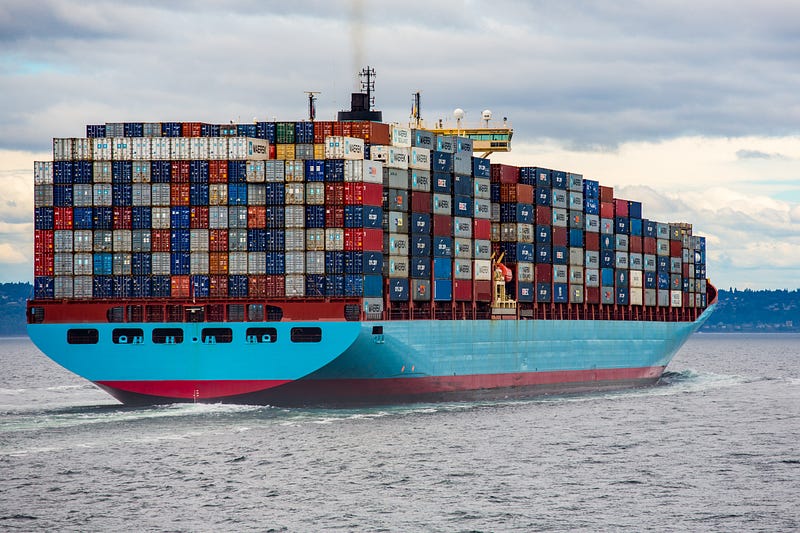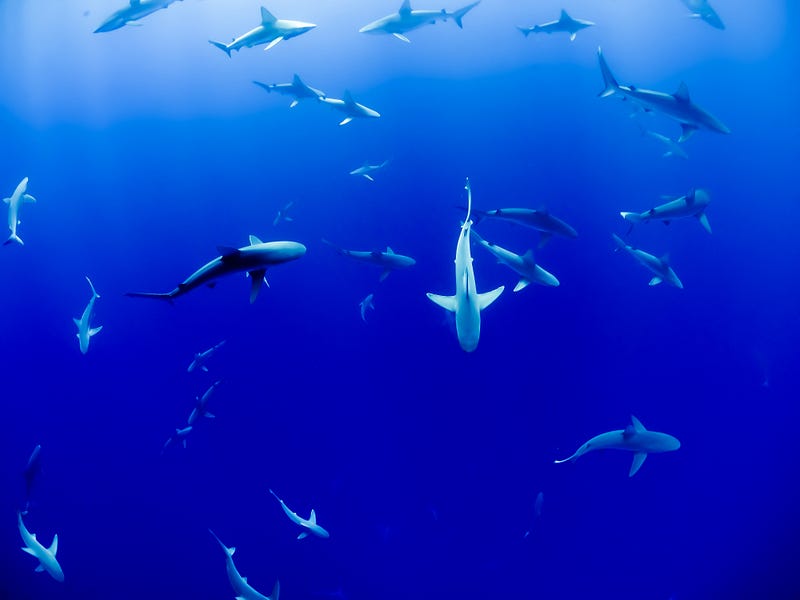The Future of Shipping: Oceanbird's Revolutionary Design
Written on
Chapter 1: Rethinking Shipping
When we envision ships, we often picture large, rusted container vessels laboriously traversing the seas. These slow-moving giants emit approximately 940 million tonnes of carbon dioxide annually, alongside the disruptive noise from their engines. However, Oceanbird aims to change this narrative by introducing what can be considered a 'future vessel' that may hold the key to preserving our economy and food supplies as we strive for net-zero emissions.
The global economy is heavily reliant on shipping; from everyday items like bananas to critical goods such as natural gas, countless aspects of life hinge on these vessels circling the planet. Although advancements have been made in efficiency over the years, the environmental toll remains substantial. Traditional engines operate inefficiently, propellers can harm marine life, and the underwater noise disrupts delicate ecosystems.

Section 1.1: Alternative Propulsion Challenges
One potential solution to the environmental impact of shipping lies in exploring alternative propulsion systems. Unfortunately, electric drives are impractical due to the sheer size of necessary batteries, and hydrogen fuel faces similar challenges. Consequently, many advocate for the shipping industry to transition to carbon-neutral biofuels. This shift could enable significant reductions in their carbon footprint.
However, a significant hurdle exists. Producing biofuels requires extensive agricultural land, and the corresponding refineries need vast solar or wind farms. Sourcing sufficient fuel for the shipping industry could necessitate the destruction of large areas of natural habitat, negatively impacting biodiversity and potentially decreasing the amount of CO2 that nature absorbs.
Even if biofuels were a feasible option, they come with a high price tag. The financial burden of transitioning to biofuels is daunting. Furthermore, this solution does not address other pressing issues, such as noise pollution and the risk of harming marine life. This is where Oceanbird enters the picture with a clever integration of traditional and modern technology.
Section 1.2: The Oceanbird Solution
Oceanbird harkens back to a time when sailing vessels traveled without releasing carbon emissions or endangering marine wildlife. By employing efficient solid sails alongside an optimized hull design, they have created a ship capable of transporting substantial cargo at speeds comparable to conventional container ships. A small diesel engine is still necessary for those calm days when wind is scarce.
This straightforward technology yields impressive results. Simulations indicate that Oceanbird can complete a transatlantic journey with the equivalent cargo of 7,000 cars in just 12 days. While current ships may complete the trip in 8 days, Oceanbird achieves this with 90% less fuel consumption. The reduced fuel usage directly translates to decreased noise pollution and fewer animal strikes, as the propellers operate less frequently.

Chapter 2: Economic and Environmental Impact
The introduction of Oceanbird could significantly alter the shipping industry's landscape. With lower fuel consumption, the industry might transition to biofuels without causing extensive environmental damage. This change could also make biofuels more affordable, as traditional fossil fuels typically dominate the market.
Furthermore, Oceanbird could eliminate the need for fuel entirely by equipping its decks and sails with large solar panels, allowing it to operate on electric power. The minimal additional energy required would enable a compact battery system, mitigating space concerns.
As governments worldwide seek to lower emissions, the shipping sector faces increasing scrutiny. Many industries have yet to develop eco-friendly alternatives, which could lead to operational restrictions or even the decommissioning of vessels. Such measures could drastically affect economies reliant on imports and exports, potentially raising food prices and destabilizing national economies.
Oceanbird presents a viable solution to this looming crisis. If widely adopted, it could prevent millions of tonnes of carbon emissions, facilitate the transition to alternative fuels, reduce pressure on marine ecosystems, and help sustain the global economy amid stringent emission regulations. The first Oceanbird is scheduled for launch in 2025, and its regular operations may take additional time. The hope is that this groundbreaking vessel arrives just in time to make a difference.